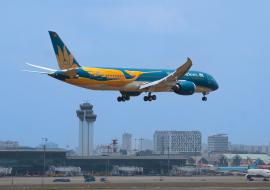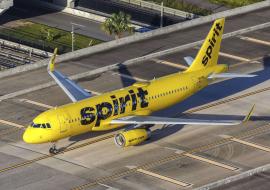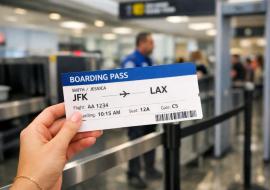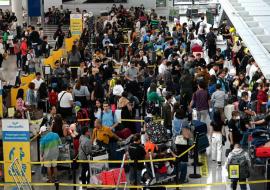Colombia Faces Aviation Fuel Shortage: Potential Crisis in the Air Travel Sector

This week, the Colombian government is grappling with a new crisis as jet fuel supplies, specifically Jet A1, have run out at several major airports, leading to growing uncertainty and potential flight cancellations. The situation has raised alarms across the aviation industry, with authorities providing limited details on how they plan to address the issue.
The crisis began nearly a week ago, disrupting the plans of both domestic and international travelers. The shortage stems from a significant disruption at the Cartagena Refinery (Reficar), where an electrical failure on August 16 severely impacted the production and delivery of Jet A1 fuel. This fuel is crucial for commercial aircraft arriving and departing from Colombia. Although the Barrancabermeja Refinery has pledged to supply 100% of its fuel capacity, the Cartagena Refinery is only able to meet 76% of its usual output, exacerbating the fuel shortage.
Latam Airlines was one of the first to raise concerns, reporting that fuel supplies at airports in cities such as Leticia, Montería, and Bucaramanga were critically low. In Bogotá, the situation is particularly dire, with fuel levels reported to be at critical thresholds. To mitigate the impact, Latam has implemented contingency plans, including loading extra fuel outside Colombia for international flights and making operational adjustments to monitor fuel consumption closely at each airport within the country.
Despite these efforts, the situation remains tense. Colombian President Gustavo Petro has publicly stated that there is no fuel shortage, dismissing reports as irregularities and announcing an investigation into the matter. However, the Civil Aviation Authority has taken a more cautious approach, suggesting that airlines may need to reschedule, suspend, or cancel flights between August 28 and September 4. This flexibility is intended to allow airlines to adapt their operations based on the availability of jet fuel. Airlines are required to inform the slot coordinator of any flight changes 24 hours in advance.
The International Air Transport Association (IATA) has also weighed in, stating that airlines are implementing measures to ration the limited fuel supply. The association emphasized the critical importance of ensuring both the availability and affordability of jet fuel to maintain the competitiveness and accessibility of air travel in Colombia. According to the Civil Aviation Authority, fuel costs account for approximately 35.1% of the operational expenses for airlines in the country, underscoring the urgency of resolving the shortage.
Several airports, including those in Cúcuta, Pasto, Leticia, and Valledupar, have already reported minimum fuel levels. Terpel, one of Colombia's leading fuel distributors, announced it would limit fuel deliveries to 85% of the requested amounts for August. The company advised airlines to optimize their logistics and operations until Ecopetrol, the state-owned oil company, can restore normal supply levels.
In response to the escalating crisis, Ecopetrol has announced an emergency measure to import 100,000 barrels of Jet A1 fuel, which is expected to arrive between August 31 and September 2, 2024. This move is seen as crucial to preventing widespread disruption in the country's air travel sector and ensuring that flights can continue to operate smoothly in the coming weeks. As the situation develops, both the government and the aviation industry will need to closely monitor fuel supplies to avoid further complications.














